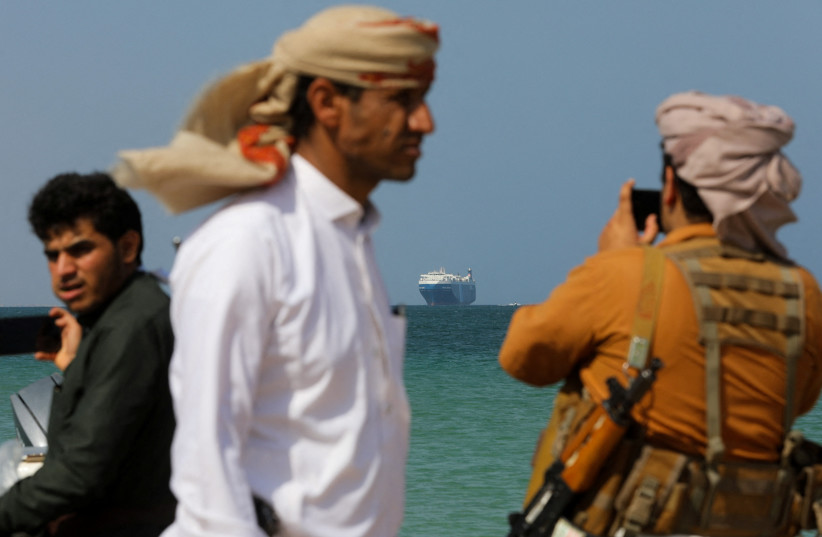Yemen's Houthis said on Tuesday they could only reconsider their missile and drone attacks on international shipping in the Red Sea once Israel ends its "aggression" in the Gaza Strip.
Asked if they would halt the attacks if a ceasefire deal is reached, Houthi spokesman Mohammed Abdulsalam told Reuters the situation would be reassessed if the "siege" of Gaza ended and humanitarian aid was free to enter.
"There will be no halt to any operations that help Palestinian people except when the Israeli aggression on Gaza and the siege stop," he said.
Shipping risks have escalated due to repeated Houthi strikes in the Red Sea and Bab al-Mandab Strait since November in what they describe as acts of solidarity with Palestinians against Israel in the Gaza war.

Responses to Houthi attacks
US and British forces have responded with several strikes on Houthi facilities but have so far failed to halt the attacks.
Top global container line Maersk on Tuesday told its clients in a statement that they should prepare for disruptions in the Red Sea to last into the second half of the year and to build longer transit times into their supply chain planning.
Seafarers remain in the firing line and have signed agreements to receive double pay when entering the high-risk zones and have the right to refuse to sail on ships passing through the Red Sea.
Galaxy Maritime Ltd, the UK-registered owner of car carrier Galaxy Leader which was hijacked by the Houthis on Nov. 19 with its 25 crew members, said on Tuesday that the mariners from Bulgaria, Ukraine, Mexico, Romania and the Philippines had "nothing whatsoever to do with the conflict in the Middle East."
"From the few permitted phone calls they are allowed, crew members are becoming increasingly concerned about their loved ones at home," Galaxy Maritime said in a update.
"Families of those being detained are now calling on the international community to take action to secure the immediate release of the crew."
Arsenio Dominguez, Secretary-General of the UN's International Maritime Organization (IMO), called for “collective action to fortify the safety of those at sea” and for the release of the Galaxy Leader.
“Attacking international shipping is first and foremost attacking seafarers,” he said at an IMO meeting.
The Houthis, who control Yemen's most populous regions, sent shipping officials and insurers formal notice of what they termed a ban on vessels linked to Israel, the US and Britain from sailing in surrounding seas.
Yemen’s officially recognized government said in a letter circulated on February 15 to IMO member countries that it had "warned of the danger of the Houthi militia” adding that the group had “continued to randomly plant sea mines”, while also using drone boats and missiles.
The fate of the abandoned cargo vessel Rubymar was unclear after it was hit by a Houthi missile on Feb. 18 in the southern Red Sea and was leaking fuel. The vessel remained submerged with water.
The ship's chartering broker told Reuters on Monday that it was looking to bring a work ship to close a hole caused by the Houthi missile. There was no further update on Tuesday.
